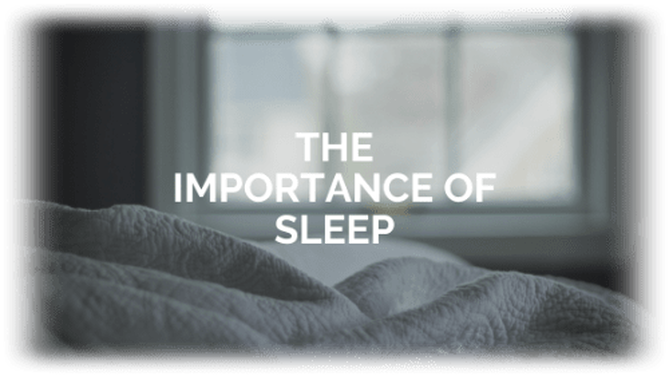Don't Neglect SleepEveryone recognises how much better they feel both physically and mentally after a solid night of full, rejuvenating deep sleep. You’re likely aware of some of the benefits that a good night’s sleep brings you; improved cognitive function, reduced stress, & physiological recovery, just to name a few. However, not everybody is aware of some of the severe effects that a lack of sleep can have upon our brains and our bodies - particularly when it comes to the immune system. Why We Need SleepSleep is necessary to prepare your brain to begin learning. It’s also necessary to essentially press save on those new memories that are in the process of forming. Without sleep, you can’t effectively transfer new experiences and information into memories. You might feel like you’re someone who can operate at 100% with less sleep than the average person – perhaps you’re even the type to brag about being able to do so (if so, big congratulations). But, realistically, you’re likely not operating at 100% and worryingly, you’re actually pushing your body towards disease. Sleep Loss & The Immune SystemThe effects of a lack of sleep may seem quite apparent or superficial, but here’s an idea of the harm it does to your body on a deeper level: Natural killer cells of your immune system work within your body to identify harmful elements and destroy them. Obviously, you want a lot of these functioning effectively in your body to reduce your susceptibility to disease. A lack of sleep doesn't give you this. In an experiment carried out to see the effects of sleep deprivation on natural killer cells, subjects were restricted to just four hours of sleep for one night, with their immune cell activity monitored. Results showed a 70% drop in natural killer cell activity. Judging from that, it’s no surprise that there are substantive links between lack of sleep and an increased likelihood of diseases including some forms of cancer and Alzheimer’s. Another study looking at gene expression, carried out by researchers at the University of Surrey, further reinforced these findings. One compared the gene activity of subjects who were limited to just 6 hours of sleep per night, for one week, to those who slept a full, 8 hours. In the 6-hour subjects, there were two key findings.
Sleep loss literally affects your genetic code; something crucially foundational to your physiology and health. How To Improve Your Sleep QualitySo, it's pretty clear sleep matters. Adults should be looking to get between 7-9 hours of sleep each night. Here's a few ways to achieve that and at the same time improve the all-important quality of sleep: Find consistency: Go to bed at the same time, wake up at the same time. (That includes weekends). Regular Exercise Limit caffeine intake in the afternoon/evening Avoid bright screens & lights prior to sleeping Limit Alcohol Intake |
Author
Christian Lawal Personal Training.
Personal training in Tunbridge Wells, Tonbridge & Sevenoaks. Archives
January 2024
|


